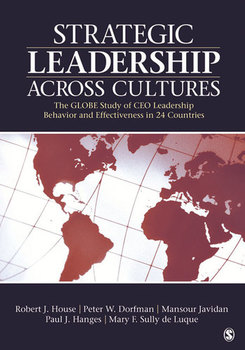Nordic Europe
Denmark, Finland, Sweden
The GLOBE Nordic Europe cluster consists of Denmark, Finland, and Sweden. The societies belonging to this cluster have a very distinct cultural practice profile. This cluster has relatively high scores of societal cultural practices on the dimensions of Institutional Collectivism and Uncertainty Avoidance. The high Institutional Collectivism findings indicate that citizens in these societies promote group loyalty and encourage collective distribution of rewards and action. The very high scores on Uncertainty Avoidance indicate that this society strongly endorses rules and procedures to reduce the uncertainty of future events. The scores on Future Orientation are in the medium range but higher than most other clusters, indicating that they plan for the future and engage in future oriented behaviors more that most other clusters. While the Gender Egalitarianism dimension is in the medium range, it is clearly higher than most other clusters, indicating that it is less-male dominated than most other clusters. The ratings of Humane Orientation and Performance Orientation fall in the middle range. The cluster’s very low score on several dimensions is also noteworthy. They have the lowest cluster scores for Power Distance, Assertiveness, and In-Group Collectivism. Interestingly, Scandinavian countries score high on Institutional Collectivism but low on In-Group Collectivism. The low In-Group collectivism scores suggest that they are generally self- reliant with fewer familial ties. Very low scores on Power Distance (i.e. the degree to which the community accepts and endorses authority, power differentials, status privileges, and social inequality) indicate that these societies have more or less equal distribution of power compared to all other societies. They are also less assertive and confrontational in personal relationships than in other societies.
The cluster's societal values (that is, what people in society believe should be), are considerably different than its cultural practices. Specifically, the cluster's values scores are much higher than cultural practices on Performance Orientation, In- Group Collectivism and Gender Egalitarianism. Note that, while the Scandinavian cluster was not only a high ranking cluster on Gender Egalitarian practices, it also is a high ranking cluster on Gender Egalitarian values—they desire even more gender equality and are among the highest of the clusters. The societies in this cluster desire much lower levels of Power Distance even though they were already the lowest cluster for cultural practices for this dimension. They also desire lower levels of Uncertainty Avoidance. While they only desire a slightly higher Future Orientation, recall it was one of the higher scoring clusters for this cultural practice. Interestingly, they desire less Institutional Collectivism but much more In-Group Collectivism. Overall, the societies in the Nordic Europe cluster want more reward and encouragement for performance excellence with more gender equality and equity. Interestingly, these societies want to be more group and family oriented with more pride, loyalty, and cohesiveness in their families, yet they desire less collective distribution of resources.
In the Nordic Europe cluster, leadership dimensions viewed as contributing the most to outstanding leadership include Charismatic/Value-Based, Team-Oriented, and Participative Leadership, scoring among the highest on the Participative dimension among all GLOBE clusters. The Charismatic attributes that are endorsed include a realistic vision, high performance orientation, integrity, and decisiveness. These societies also value team oriented leaders whose characteristics include developing oustanding teams and using their administrative and interpersonal skills to create cohesive working groups. The Humane-Oriented Leadership score is viewed as slightly positive for contributing to outstanding leadership but the lowest among other clusters. These societies view Autonomous Leadership as neutral, but they view the Self-Protective Leadership dimension quite negatively. In fact, the Self-Protective leadership score is the lowest for all clusters indicating the rejection of this leadership behavior (including attributes such as self-centered, status- conscious, face-saving, and conflict-inducing behaviors of a self-protective leader). Overall, the profile of an outstanding Nordic European leader would be someone who is performance oriented, visionary and very participative with high integrity and a degree of self-reliance. They should reject any form of status enhancement and self-centeredness.
Culture Visualization
Leadership Visualization
GLOBE Books
The GLOBE books represent results from a twenty-year research program investigating the influence of culture on societal and organizational effectiveness. Our latest book showcases our examination of strategic leadership effectiveness for top-level management based on data from more than 1,000 CEOs and over 6,000 top-level managers in 24 countries.
View



